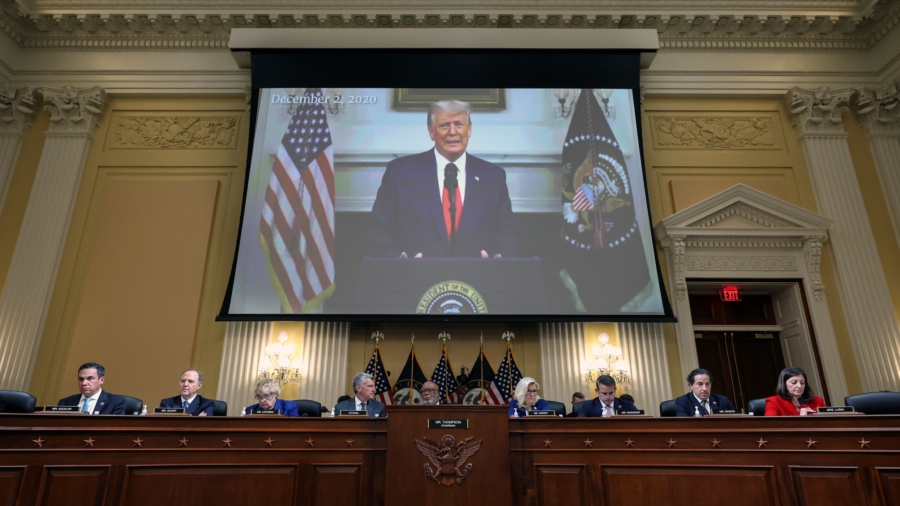Former President Donald Trump has filed a lawsuit seeking to block a subpoena issued by the House Committee investigating the Jan. 6 Capitol breach.
The Jan. 6 Committee subpoena asks Trump to hand over certain documents, and to testify in a “closed-door deposition” about the events that took place while he was the president, the lawsuit stated. In the past, other presidents have voluntarily agreed to turn over documents or testify in response to a congressional subpoena. However, “no President or former President has ever been compelled to do so,” it noted.
For 50 years, it said, the Department of Justice has “consistently opined” that presidents have absolute immunity against any compulsion to submit to congressional testimony.
The lawsuit cited a Supreme Court observation that warned that a Congress without limits on its subpoena powers could exert an “imperious control” over the executive branch and aggrandize itself at the president’s expense.
“The separation of power concerns raised by congressional aggrandizement at the expense of the Executive Branch do not expire when a President leaves office,” the suit pointed out.
The only exception to such testimonial immunity is if the testimony itself is concerned with the House of Representatives’ impeachment jurisdiction. But the subpoena issued by the Jan. 6 Committee does not arise from an impeachment inquiry, the lawsuit stated.
“As a result of the Committee’s self-described ‘unprecedented’ action, President Trump has been put in the untenable position of choosing between preserving his rights and the constitutional prerogatives of the Executive Branch, or risking enforcement of the subpoena issued to him,” it said.
Invalid Subpoena, Biased Committee: Lawsuit
The lawsuit claimed that the subpoena is invalid because there were other sources that can provide the information the committee is seeking; the fact that the Jan. 6 Committee did not issue the subpoena to further a valid legislative purpose; and that the subpoena is “broader than reasonably necessary” and infringes on Trump’s First Amendment rights.
It also argued that the Jan. 6 Committee is not “duly authorized” to issue such subpoenas and lacks the authority to do so.
The lawsuit revealed that Trump had earlier tried to resolve the dispute with the Committee in a manner that would have provided it with the necessary information.
Yet, the Committee insisted that the former president must “yield to the demands of the Legislative Branch and comply with its subpoena.”
The Jan. 6 Committee is dominated by Democrats and only has two Republicans. Both the GOP members, Rep. Adam Kinzinger (R-Ill.) and Ranking Member Liz Cheney (R-Wyo.), are known to be Trump critics and were appointed over the expressed wishes of House Minority Leader Kevin McCarthy (R-Calif.), who had wanted Rep. Jim Banks (R-Ind.) to serve as ranking member.
Critics have argued that the lack of adversarial voices in the Jan. 6 Committee has led to a one-sided investigation that tends to demonize Trump and his supporters.
From The Epoch Times


